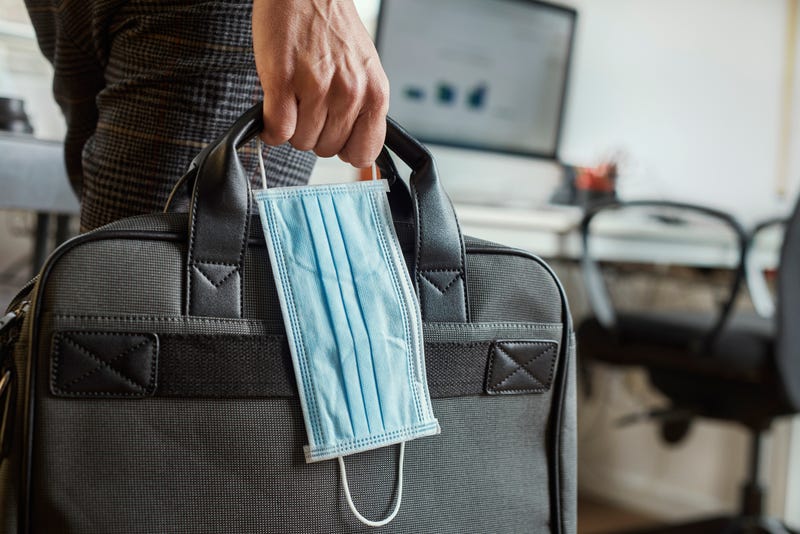
COVID-19 is here to stay, and masking isn’t going away any time soon as a result.
As omicron spreads and people brace for possible new variants in the future, it’s becoming clear that face masks, aside from vaccination, are essential in helping stop the spread.

"Omicron does represent a new threat," said Dr. Stephen Luby, epidemiologist and professor of medicine at Stanford University on KCBS Radio's "Ask an Expert" with Holly Quan and Dan Mitchinson on Monday. "The data that we have, suggests it’s more transmissible."
But it’s still a variant of COVID-19, and like with other respiratory illnesses, masking is still an effective way to mitigate the spread, he said. "A good mask is a good idea with the threat of omicron."
While the CDC recommends that a disposbale mask should only be worn once, surgical masks can be worn effectively for up to three weeks if washed or disinfected with UV light, according to Luby.
"My personal view is that this really comes out of a more of a medical model," he said. Doctors and medical professionals are expected to dispose of their masks after each use, as they are dealing with higher risks of exposure.
"Those of us who are out in the community, it’s reasonable for us to wash and reuse our masks," said Luby.
The disposable masks present an advantage over cloth masks, as they have better filtration. "They work better at filtering out the virus," he said.
But it’s also important to have a mask that fits well, and cloth masks can be made to fit people’s faces better.
With an ideal mask, a well-fitted surgical, mask, people have around 95% or higher protection against the virus, he said. But fit isn't usually well done, and with the average cloth mask, the filtration efficiency goes down to about 30 to 40%, said Luby.
The amount of virus that actually gets on the mask is pretty low when people wear them out in public, said Luby. People should be careful when they take their masks off, and washing them when they can, he said.
Since it’s becoming more and more apparent that COVID-19 isn't going away, it’s even more important to step up masking during times of high transmission, he said. Particularly during the winter season.
"Just wearing a mask is a minor inconvenience," said Luby. "We can do this, and we can reduce risk, especially when we’re in crowded settings."

